Backlinks aren’t so important anymore. Posts to this effect appear in my LinkedIn and X feeds almost as often as the “SEO is dead” ones.
But are they really that irrelevant?
As the owner of SEO link building service Editorial.Link, I see it differently.
Let’s find out!
In this article, I will walk you through the official Google position on backlink importance and how it stacks against empirical research, and why backlinks are now becoming signals not just for SEO rankings, but also for visibility in AI-powered search systems like LLM-generated answers and Google’s AI Overviews.
How Important Are Backlinks for Search Engine Performance?
SERP performance is usually the main reason we talk about backlinks. They have been the cornerstone of SEO for years.
What does Google say?
One of the reasons for the claims that backlinks don’t matter comes from the shift in Google’s official stance on links.
In March, Big G. dropped the word ‘important’ from its documentation, so links are just “a signal when determining the relevancy of pages,” not an “important signal.”
Google’s employees have also commented about the decreasing impact of backlinks on a few occasions.
Back in 2022, John Mueller hinted that “over time, the weight on the links at some point will drop off a little bit.”
In 2023, Gary Illyes, a Google Search team analyst, said they aren’t one of the top three linking factors anymore:
“I think they are important, but I think people overestimate the importance of links. I don’t agree it’s in the top three. It hasn’t been for some time.”
Mind you, though, that he didn’t say they weren’t important, only that their importance was decreasing.
In April this year, at the SERP Conf in Sofia, he added that Google needs very few links to rank pages:
"We need very few links to rank pages... Over the years we've made links less important."
However, he later backed out of it on X:
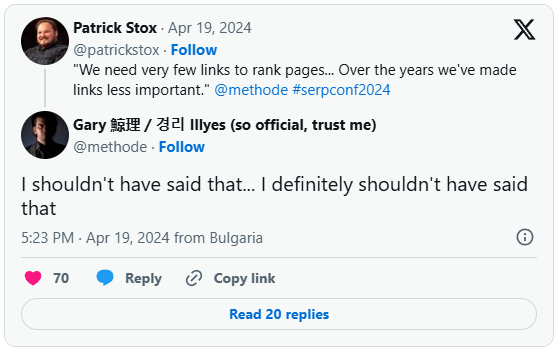
Earlier this year, John Mueller was back at it by commenting that “there are more important things for websites nowadays, and over-focusing on links will often result in you wasting your time doing things that don’t make your website better overall.”
If not backlinks, then what should you be focusing on to improve your SERP performance?
In 2022, Google released the helpful content update, which became a part of its core algorithm this year. Its purpose? To promote content written with humans and not search engines in mind.
Basically, you need to create valuable, high-quality content that answers user needs, and rankings will follow.
What does research say?
The 2024 Semrush study of ranking factors found that, indeed, content relevancy and quality were the two factors that correlated with higher rankings.
However, they also concluded that “earning backlinks from unique domains is still important, both at page and domain level.”
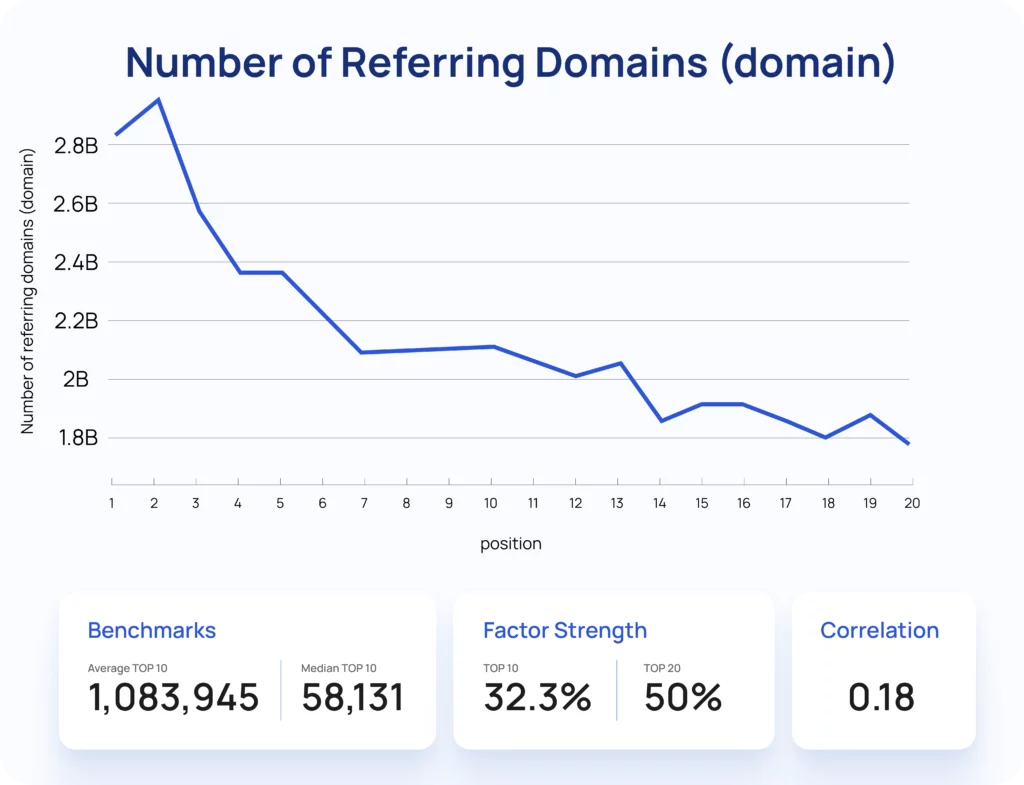
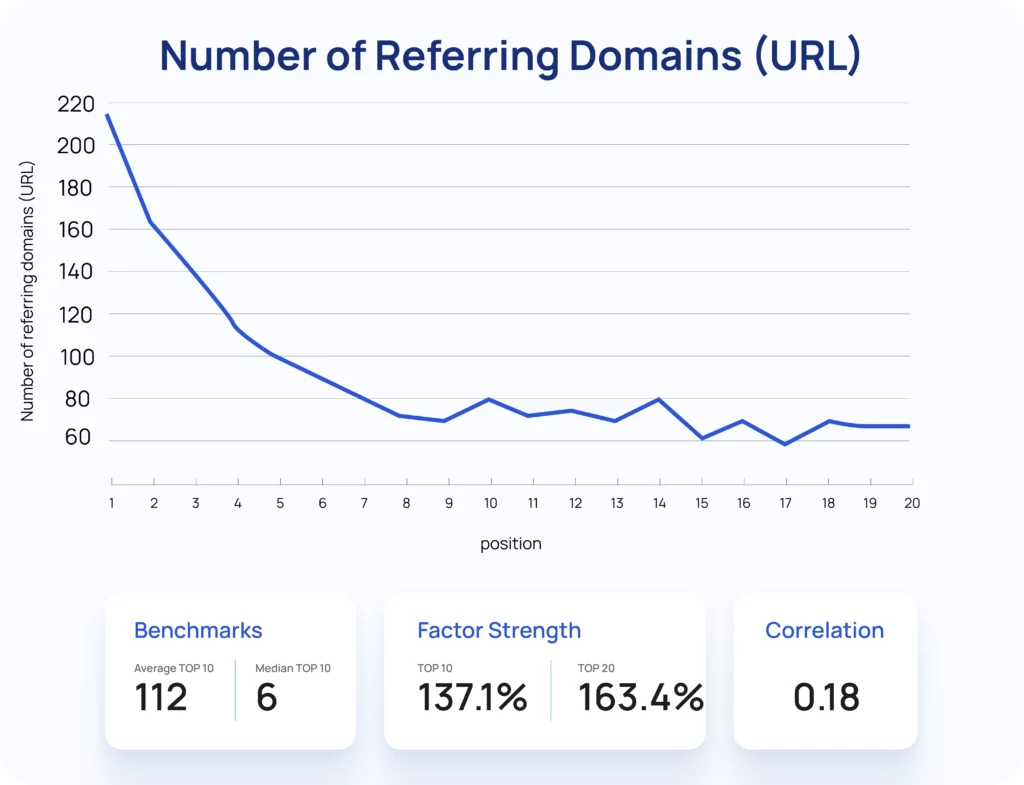
This isn’t the only data that points to correlations between backlinks and SERP performance.
A Backlinko study of nearly 12 million search results revealed that pages in the #1 spot had 3.8x more links than pages placed in the #2-10 spots.
“Pages with lots of backlinks rank above pages that don’t have as many backlinks. In fact, the #1 result in Google has an average of 3.8x more backlinks than positions #2-#10.”
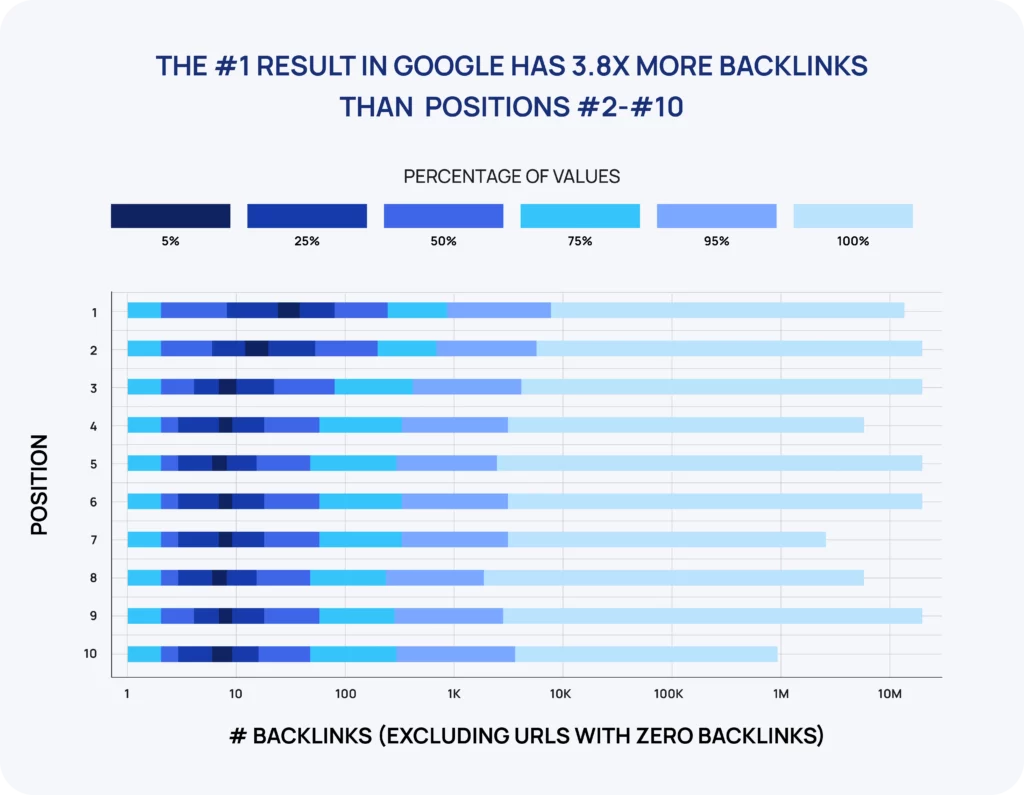
The study by Internet Marketing Ninjas published earlier this year also showed that websites that perform better in search engine results have more links. 85% of the 1113 websites ranking on page 1 for 200 random keywords had more than 1000 backlinks from unique domains.

Ahrefs data confirms this: the more backlinks a page has, the more keywords it ranks for.
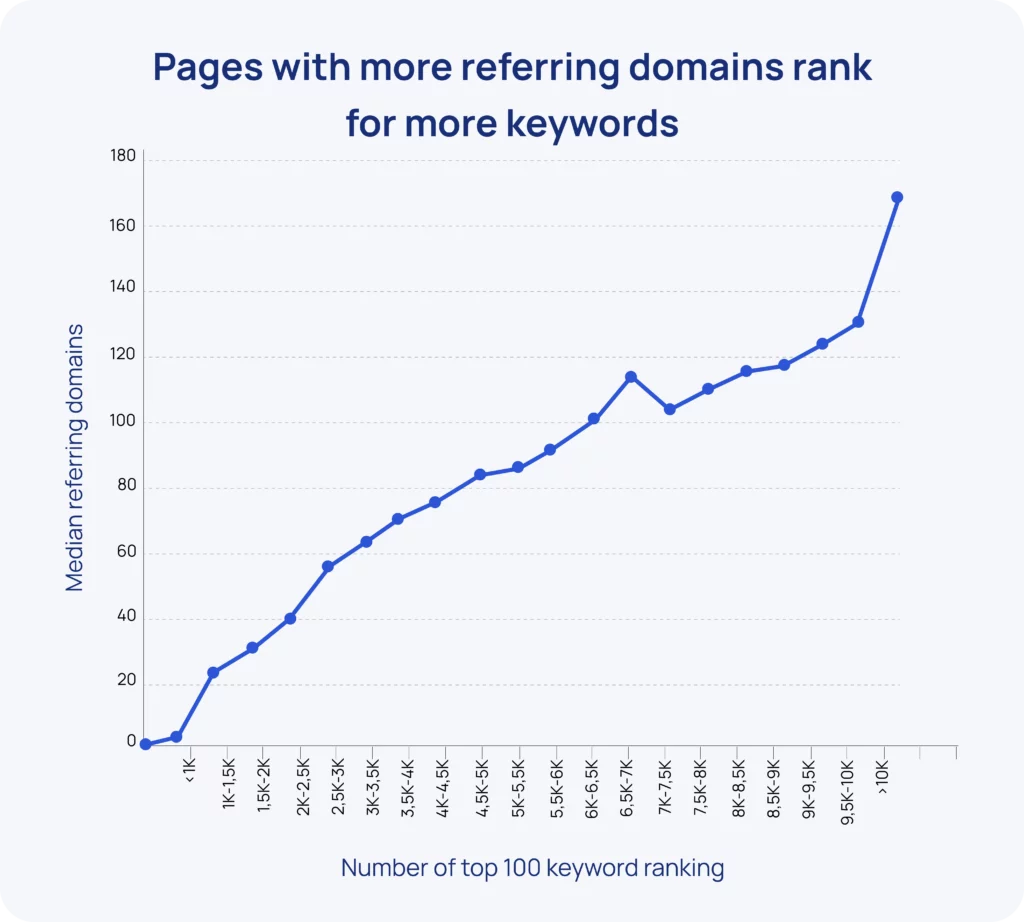
There’s also a correlation between the number of referring domains and traffic. The more links point to your website, the more traffic it attracts.
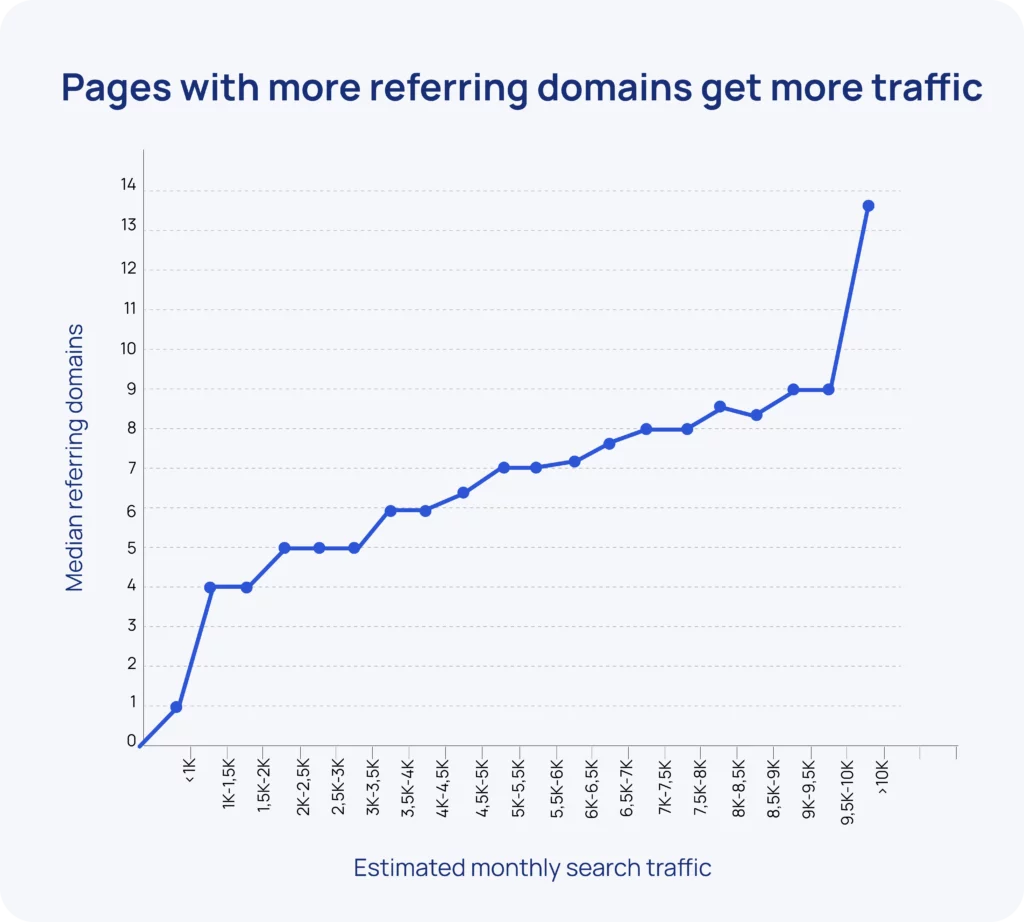
Based on the studies, we can conclude that the links still have an impact on your content performance. And SEOs know this.
91% of experts who took part in Aira’s study on the impact of link-building believe it’s effective or very effective in influencing search rankings.
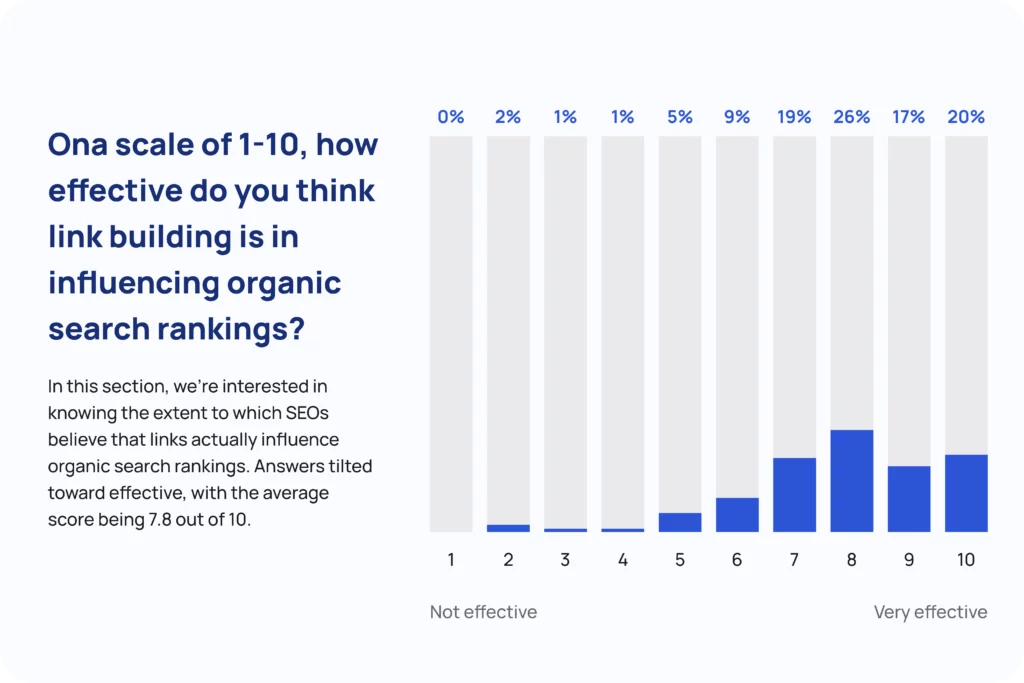
The study we conducted earlier this year was slightly less decisive. 58.4% of the survey participants rated the impact of links as high.
Interestingly, over 70% believe it’s possible to rank on Google without backlinks, leveraging high-quality content only.
From my experience, it is possible indeed, but only in very certain circumstances:
- When targeting low-competition keywords in micro niches;
- In niches where you have strong topical authority;
- In local search.
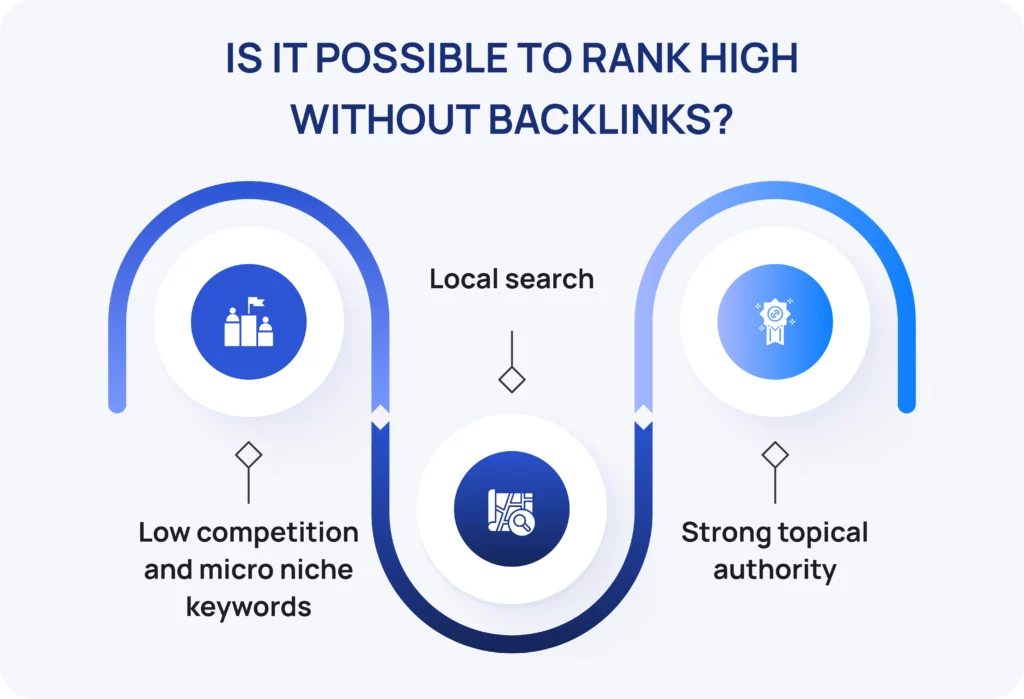
In competitive sectors like SEO, SaaS, or legal services, it’s difficult to find websites that do well without backlinks.
For example, here’s the SERP for “link building services.” All the pages in the top 10 (apart from Reddit, of course) have several hundred links.
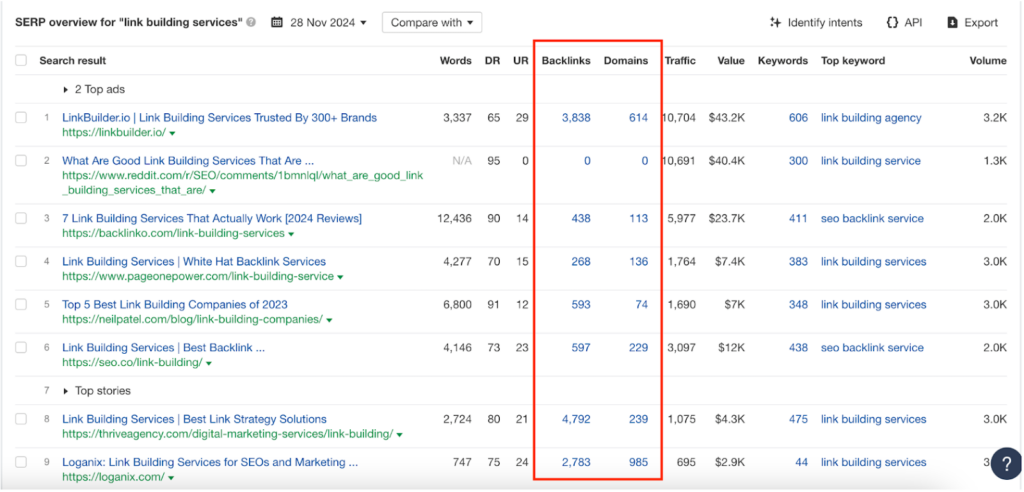
The same for “project management tools,” a highly competitive keyword.
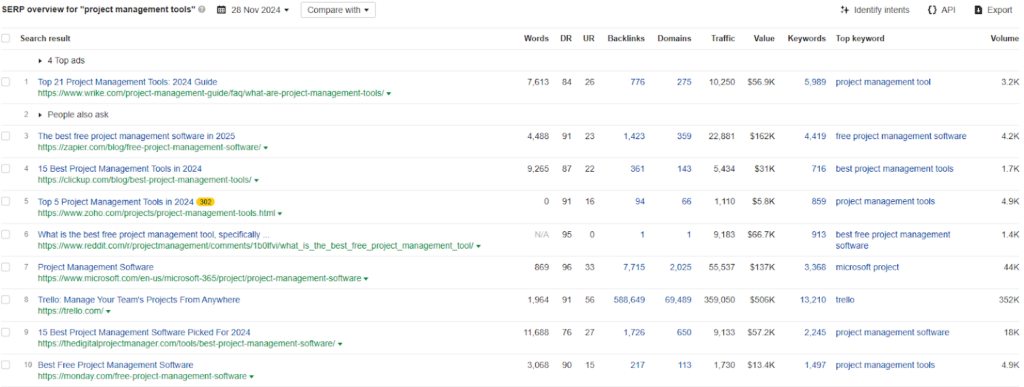
To rank for “divorce lawyer los angeles,” you’re against either domains with strong DA, like Forbes, or pages with lots of backlinks.
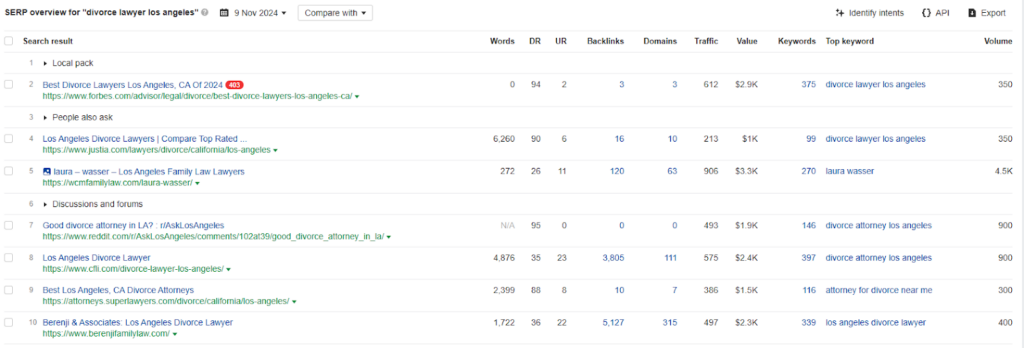
Are backlinks important for AI Search? Yes.
A recent Ahrefs study found that 76.10% of pages cited in AI Overviews also rank in Google’s top 10 results.
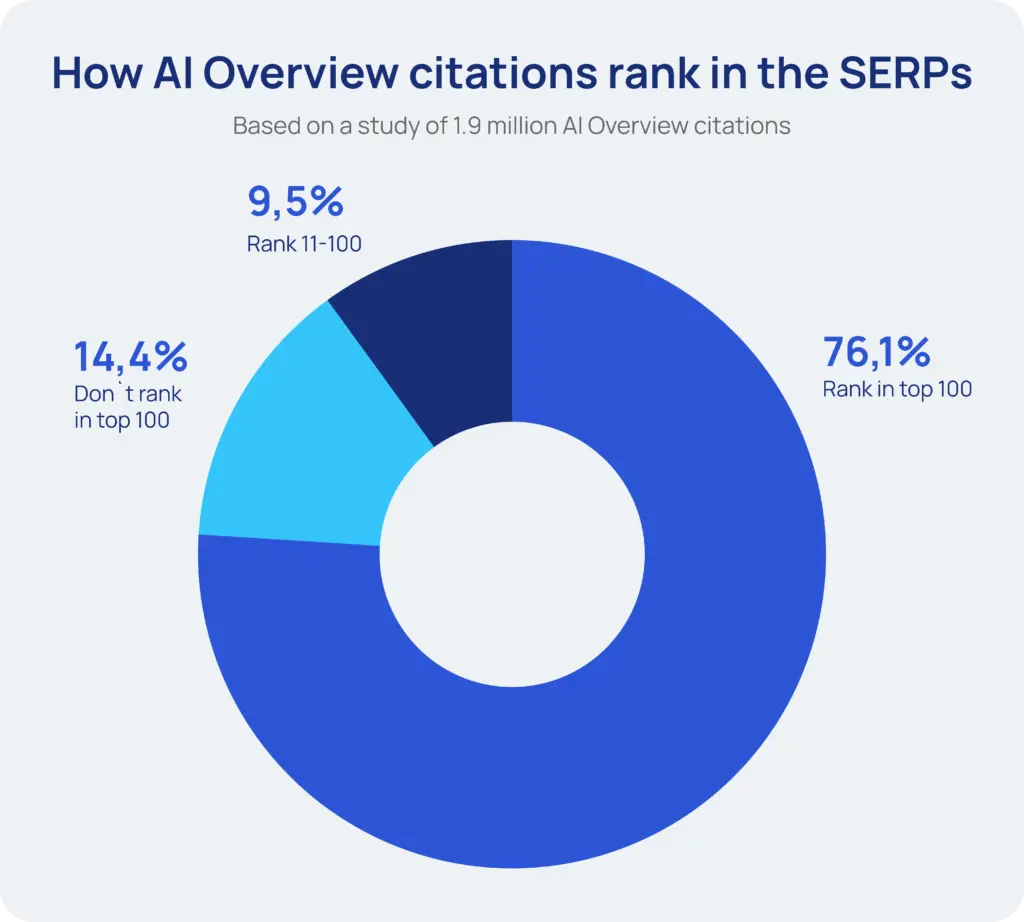
That’s a strong indicator that high organic rankings and AI citations go hand in hand.
If you want your content showing up in AI-generated answers, you need to be ranking well in traditional search first.
Yes, 9.50% of AI-cited pages rank between positions 11–100 and 14% don’t rank in the top 100 at all, but those are the exceptions.
Most of the time, ranking in the top results is key to AI visibility, and quality backlinks are a big part of getting there.
Semrush research
New findings from Semrush’s latest analysis of 1,000 domains reveal several notable trends.
Key takeaways:
- Backlinks still influence visibility in AI-generated answers, but the platforms increasingly favor links from credible, authoritative sources rather than large quantities.
- Semrush data shows a direct correlation between higher Authority Scores and increased brand mentions within AI-generated responses.
- Nofollow links are nearly as influential as follow links in this context.
- Image-driven backlinks show competitive performance relative to text links, and the effect is more pronounced when the links come from authoritative sources.
So, what can we conclude from Semrush’s data about the importance of backlinks for AI search visibility?
The study shows that domain authority has a direct impact on AI visibility. The correlation between Authority Score and AI mentions is 0.23 by Pearson and 0.36 by Spearman, highlighting a clear threshold where visibility increases only once a site reaches a stronger authority level.
Link quality plays an even bigger role, with correlations of 0.65 (Pearson) and 0.57 (Spearman), making it the strongest relationship in the report.
Nofollow links perform almost the same as follow links. Follow links show correlations of 0.334 (Pearson) and 0.504 (Spearman), while nofollow links come in at 0.340 and 0.509, showing that both link types contribute similarly to AI visibility.
Image-based backlinks also stand out. They score 0.415 (Pearson) and 0.538 (Spearman), compared to 0.334 and 0.472 for text links, and the advantage becomes more noticeable for higher-authority domains.
AI platforms vary in how they interpret these signals. Image links perform best in Perplexity and ChatGPT Search, while nofollow signals are slightly stronger in Gemini and standard ChatGPT.
Authority has the weakest influence on Perplexity and the strongest on ChatGPT.
5 Reasons Backlinks Shape Both SEO Rankings and AI Search
Let’s dive a bit deeper now and try to understand why backlinks are so important for your SEO success.
1. Backlinks are important Google ranking signals. Still.
As mentioned before, Google has been trying to deemphasize the importance of backlinks.
However, its internal documents leaked earlier this year showed that the opposite is true: links still play an important role when ranking pages.
But not just any links. The documents underscore the importance of link relevance and quality over sheer numbers.
Google uses the authority of the referring domains to rank. It even has its proprietary metric, SiteAuthority score. Links from high-quality media sites are particularly valuable.
Another factor that affects the strength of backlinks is their diversity. The more unique referring domains link to your page, the better for its rankings. We saw evidence of that in the Semrush study:
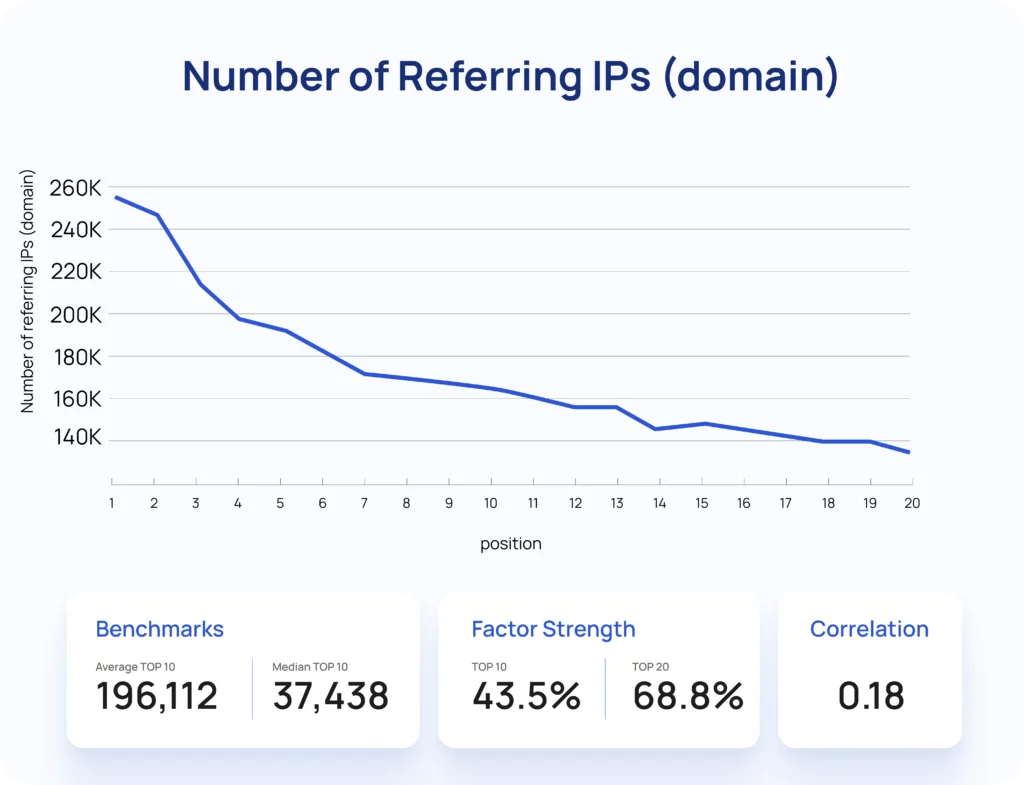
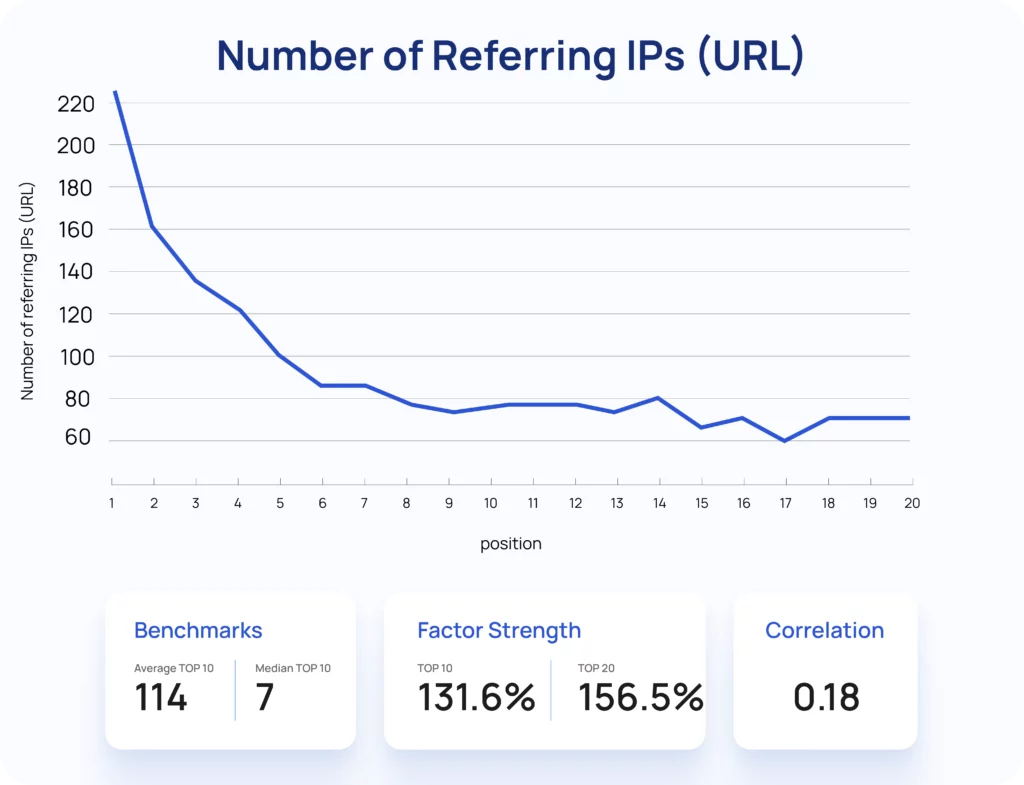
Content freshness matters as well. Links from newer sites are probably more valuable.
Most importantly, your links need to be relevant. Google uses the anchor texts and the surrounding text to determine relevance. And most likely dismisses irrelevant links.
2. Improved user engagement metrics
Link relevance can also affect your rankings indirectly.
Backlinks bring to your site referral traffic. This tends to be highly targeted traffic: readers interested in your content.
Which improves your engagement metrics. They have lower bounce rates and stay longer on the site.
And guess what? Google considers such interaction signals when ranking pages.
Let’s not forget that such visitors are more likely to become your customers. That’s, however, outside the scope of this article.
3. Faster indexing by search engines
Backlinks help search engines discover and index your website.
Think of them as pathways that guide search engine crawlers to your content. When a website links to your page, it signals to search engines that your content is worth indexing.
Here’s the kicker:
Search engines don’t crawl all pages with the same frequency. They prioritize more established domains with higher authority, traffic, and social engagements, like news websites. This is another reason why such backlinks are so valuable.
4. Semantic understanding
Links don’t only help search engines find your website but also understand its content.
Google considers factors like the anchor text, the surrounding content, and the overall topic of the linking page to figure out what your page is about and how it fits into the larger ‘ecosystem’ of related topics.
5. Influence on AI-powered search and Google AI Overviews
Backlinks now do more than influence search rankings. AI-powered features like Google’s AI Overviews use them to decide which sources are trustworthy enough to include in answers.
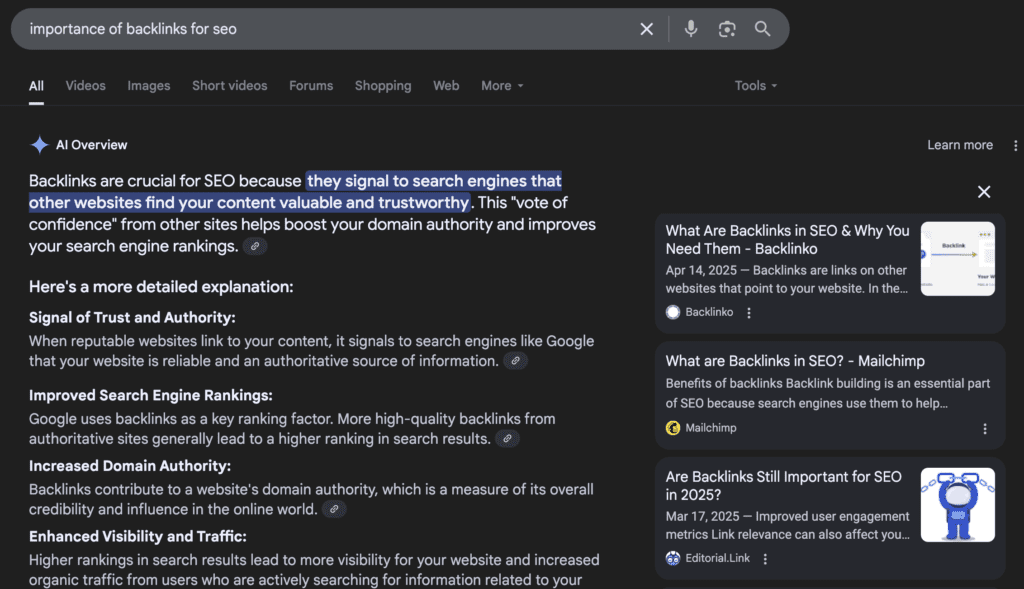
Pages with strong, relevant backlinks are more likely to be crawled, cached, and surfaced in AI-generated content. For your brand, that can be the difference between being featured or being overlooked entirely.
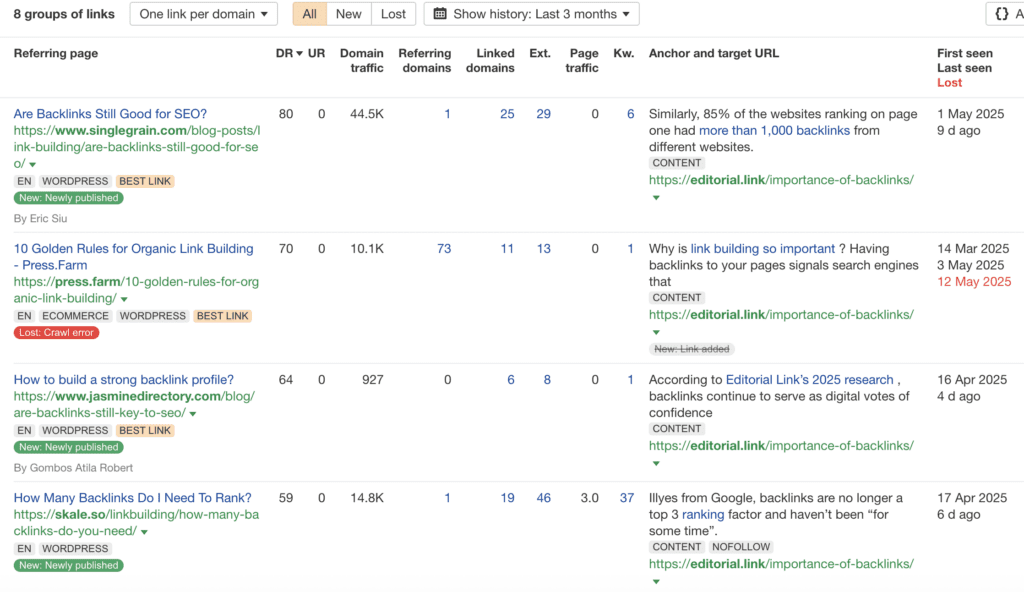
Mentions in listicles can directly impact your presence in AI search results. As search evolves, backlinks are not just about rankings anymore. They are a key driver of visibility, authority, and trust in both traditional and AI-powered search.
Not All Backlinks Are Important, Though
‘Not all links are created equal’ is the most overused cliche in SEO. But research and leaked documents confirm that it’s very true.
As shown above, the authority of the referring domain affects how much the link can help your rankings.
In some instances, links have no impact whatsoever.
For example, links from irrelevant pages aren’t likely to improve your SERP performance because Google most likely ignores them.
Worse yet, they can harm your efforts. Maja Jovanovic, the former Director of SEO at Gaming Innovation Group, learned it the hard way when her site’s rankings for main keywords tanked after landing links from DR90+ sites like the Guardian.
Why? Because the anchor texts didn’t align with her site’s topic.
Google also ignores spammy links, like those from link farms or PBNs. Such websites are built with the sole purpose of violating search engine rankings and, consequently, violate its guidelines.
The leaked documentation also suggests you can get penalized for “BadBackLinks,” despite Google’s claims that link toxicity is a myth.
Conclusion
Even though search engine algorithms are becoming increasingly sophisticated, backlinks remain one of the key ranking factors for both traditional SEO and visibility in AI-powered search.
However, evidence suggests that link volume doesn’t have as much impact as its quality. A few backlinks from relevant and highly authoritative websites will benefit your rankings more than hundreds of spammy links.
Need such top-notch backlinks for your website? Editorial.Link can help! Get in touch!

